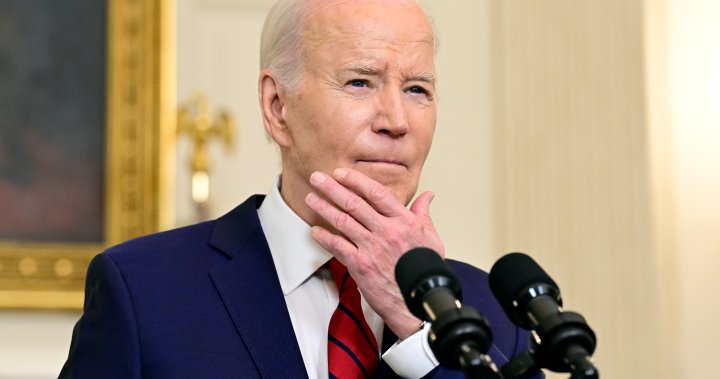
Did Israel break international law? Biden administration could weigh in this week
Global News
The Biden administration agreed in February to look at whether Israel has used U.S.-provided weapons and other military assistance in a lawful manner.
Facing heat over its military support for Israel’s campaign, the Biden administration is due to deliver a first-of-its-kind formal verdict this week on whether the airstrikes on Gaza and restrictions on delivery of aid have violated international and U.S. laws designed to spare civilians from the worst horrors of conflict.
A decision against Israel would add to pressure on President Joe Biden to curb the flow of weapons and money to Israel’s military.
The administration agreed in February at the insistence of Democrats in Congress to look at whether Israel has used U.S.-provided weapons and other military assistance in a lawful manner.
Additionally, under the same agreement, it must tell Congress whether it deems that Israel has acted to “arbitrarily deny, restrict, or otherwise impede, directly or indirectly,” delivery of any U.S.-supported humanitarian aid into Gaza for starving civilians there.
State Department spokesman Matthew Miller told reporters Tuesday that the department was trying to meet the Wednesday deadline for completing the review but “it’s possible it slips just a little bit.”
The administration is compelled to make a decision at a time when tumult in internationally brokered cease-fire negotiations and a threatened Israeli offensive on the crowded southern Gaza city of Rafah — a move adamantly opposed by the U.S. — could change both the course of Israel’s campaign and Americans’ support for it.
Israel’s campaign to crush the Hamas following its surprise October attack and the disaster that’s followed for Gaza’s civilians also have fueled debate within the Biden administration and Congress over broader questions.
Does the U.S. call grave human rights violations by one of its foreign recipients of military support when it sees them? Or only when it deems doing so serves broader U.S. strategic interests?











